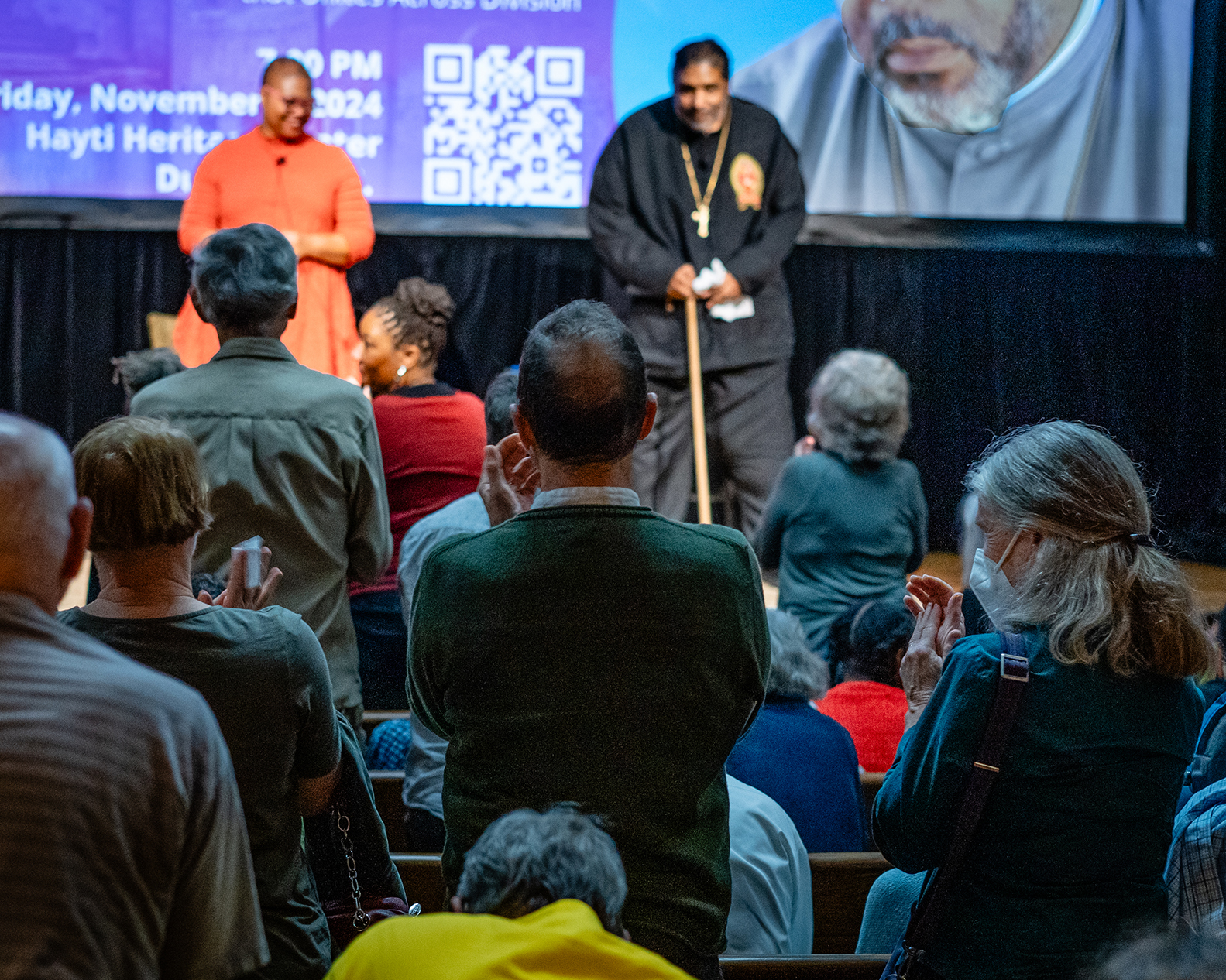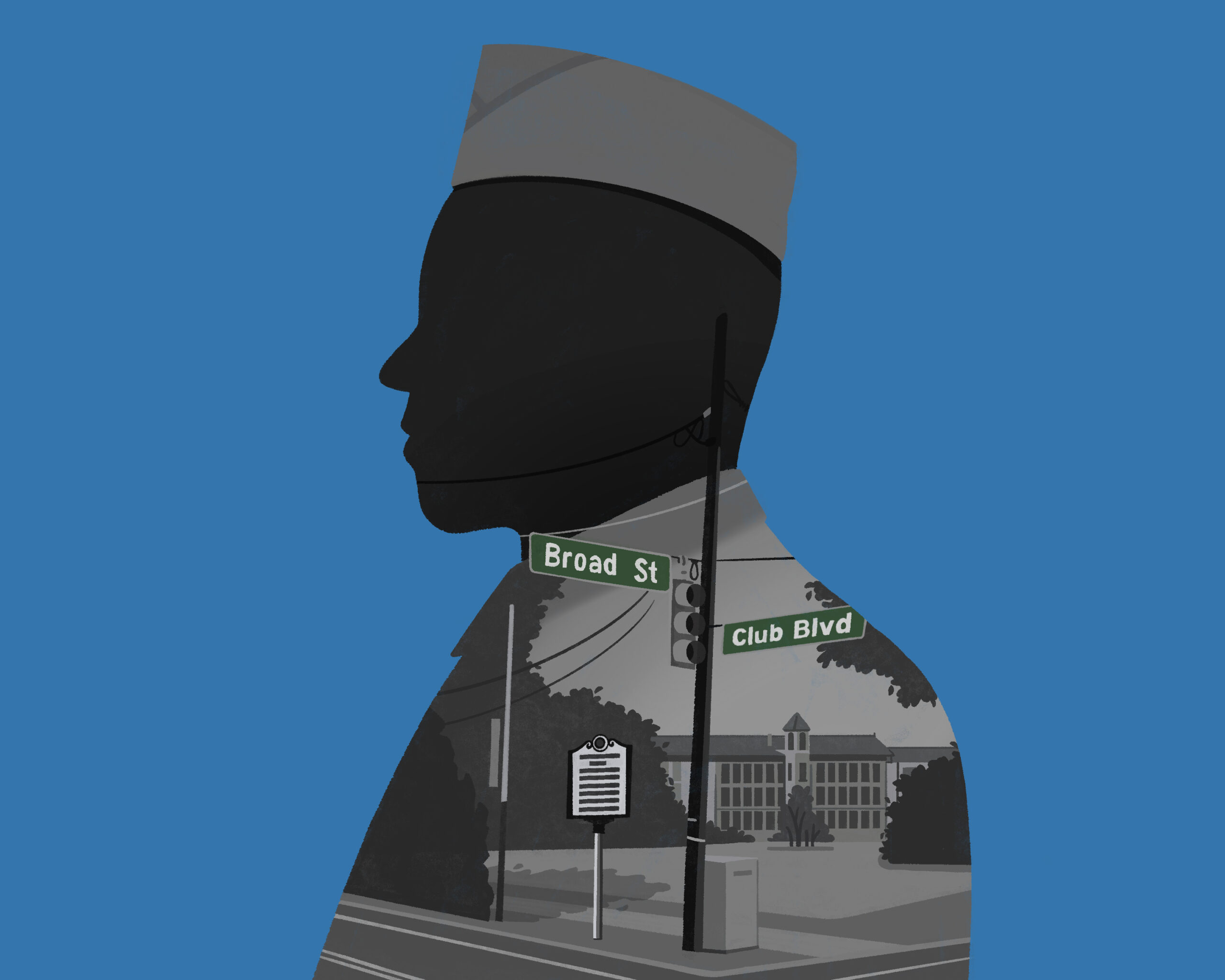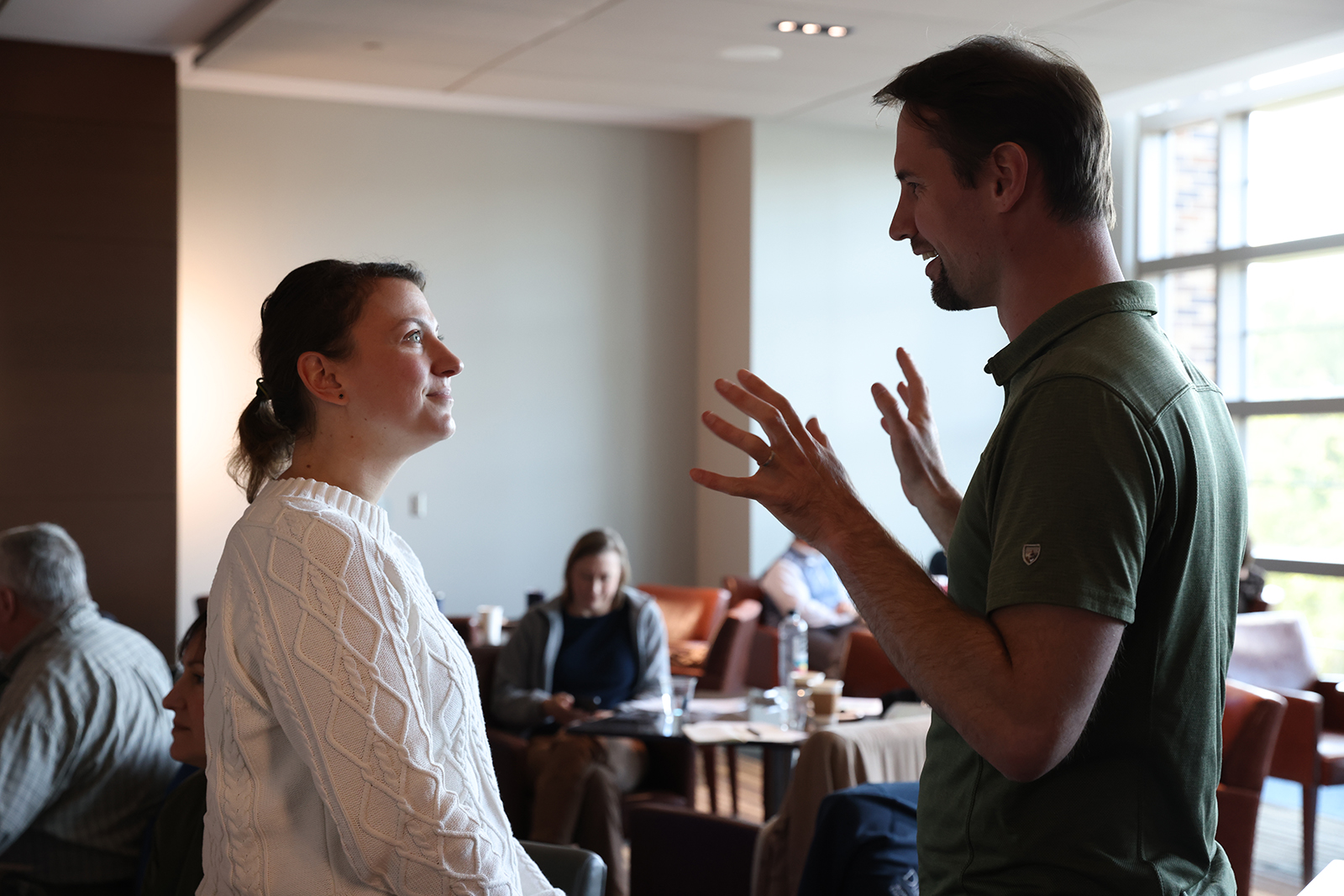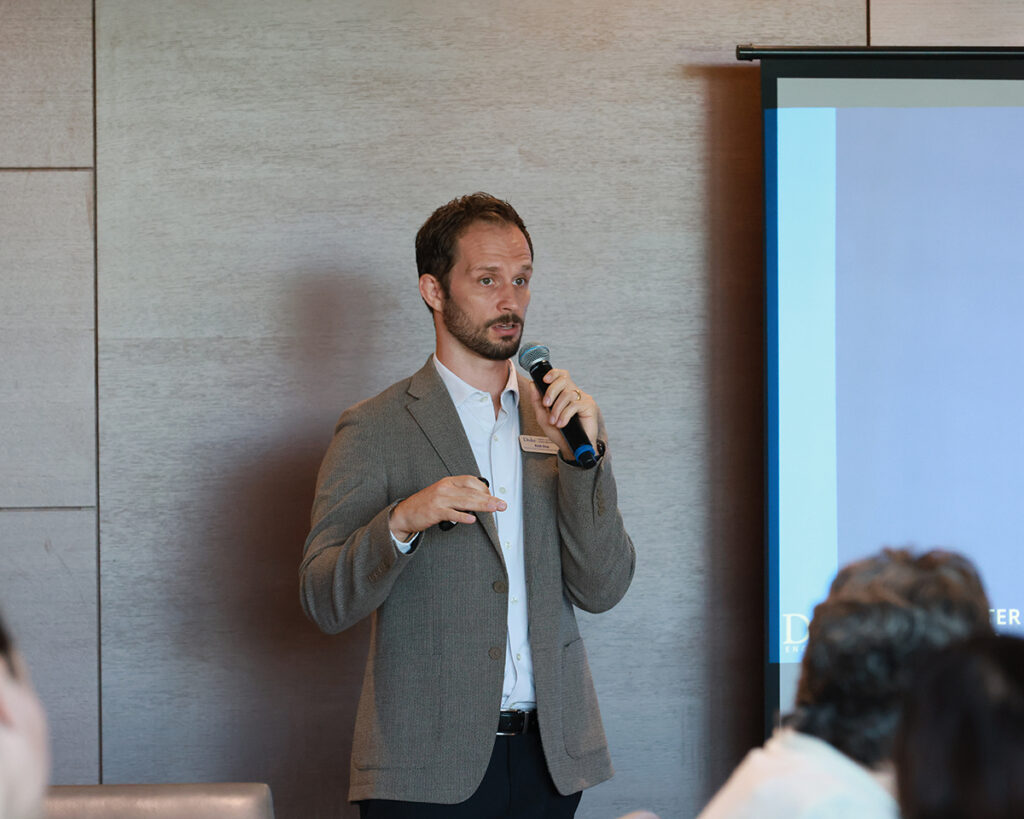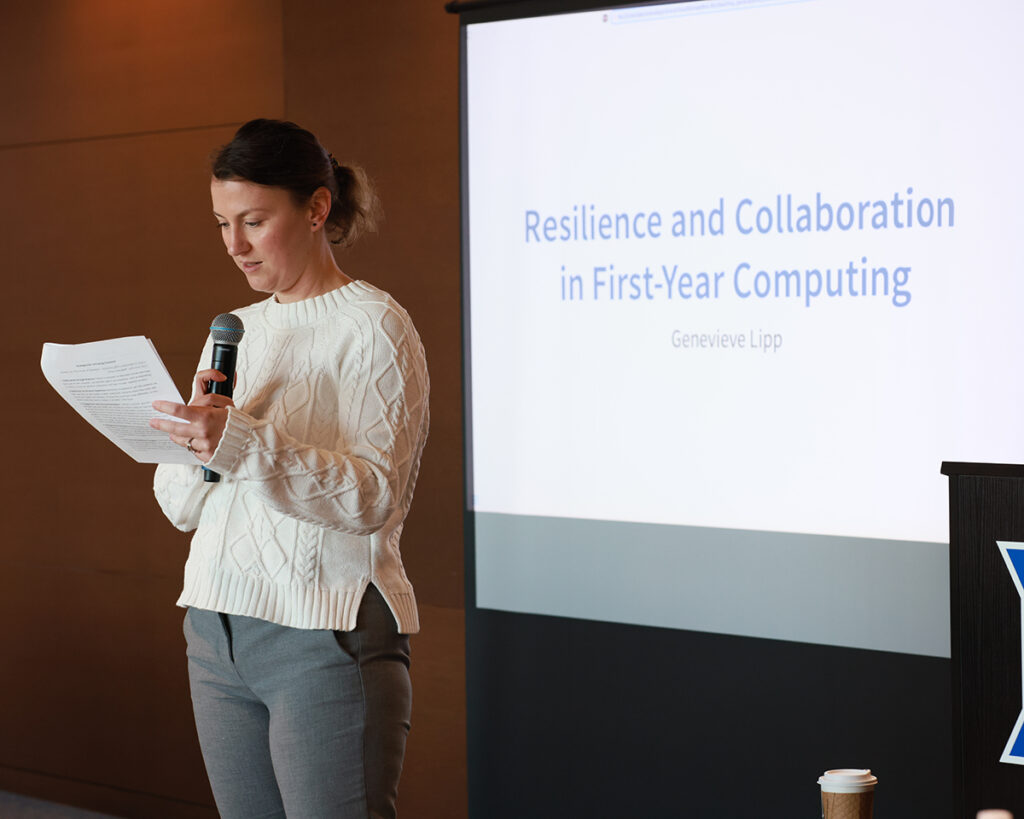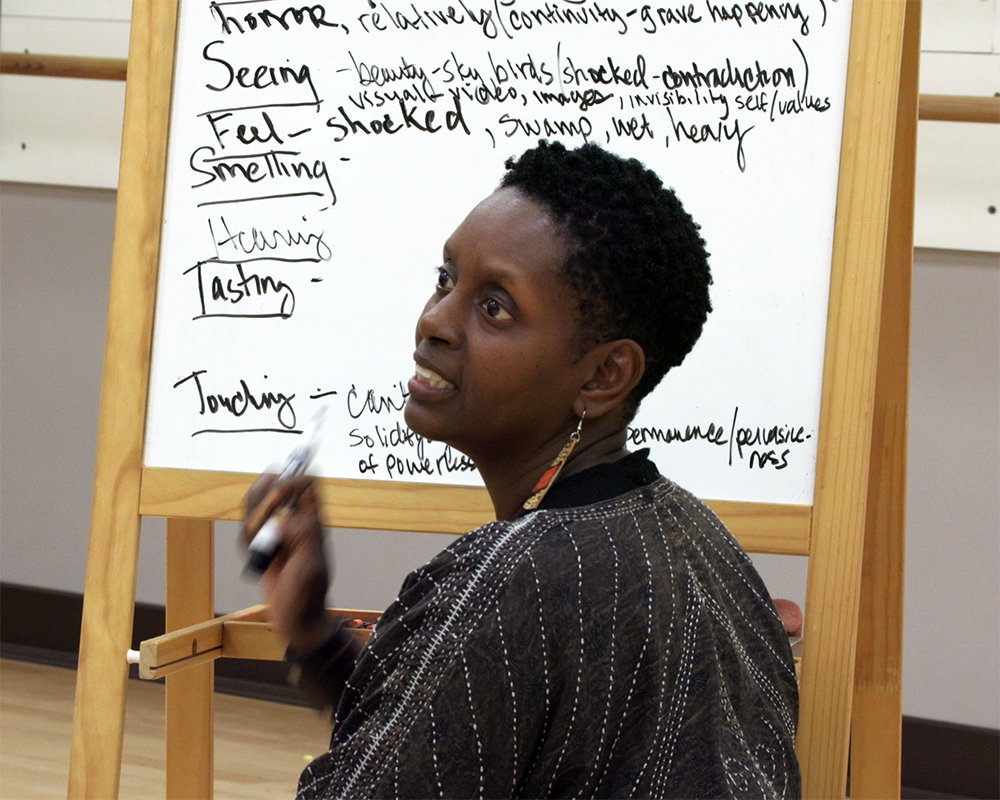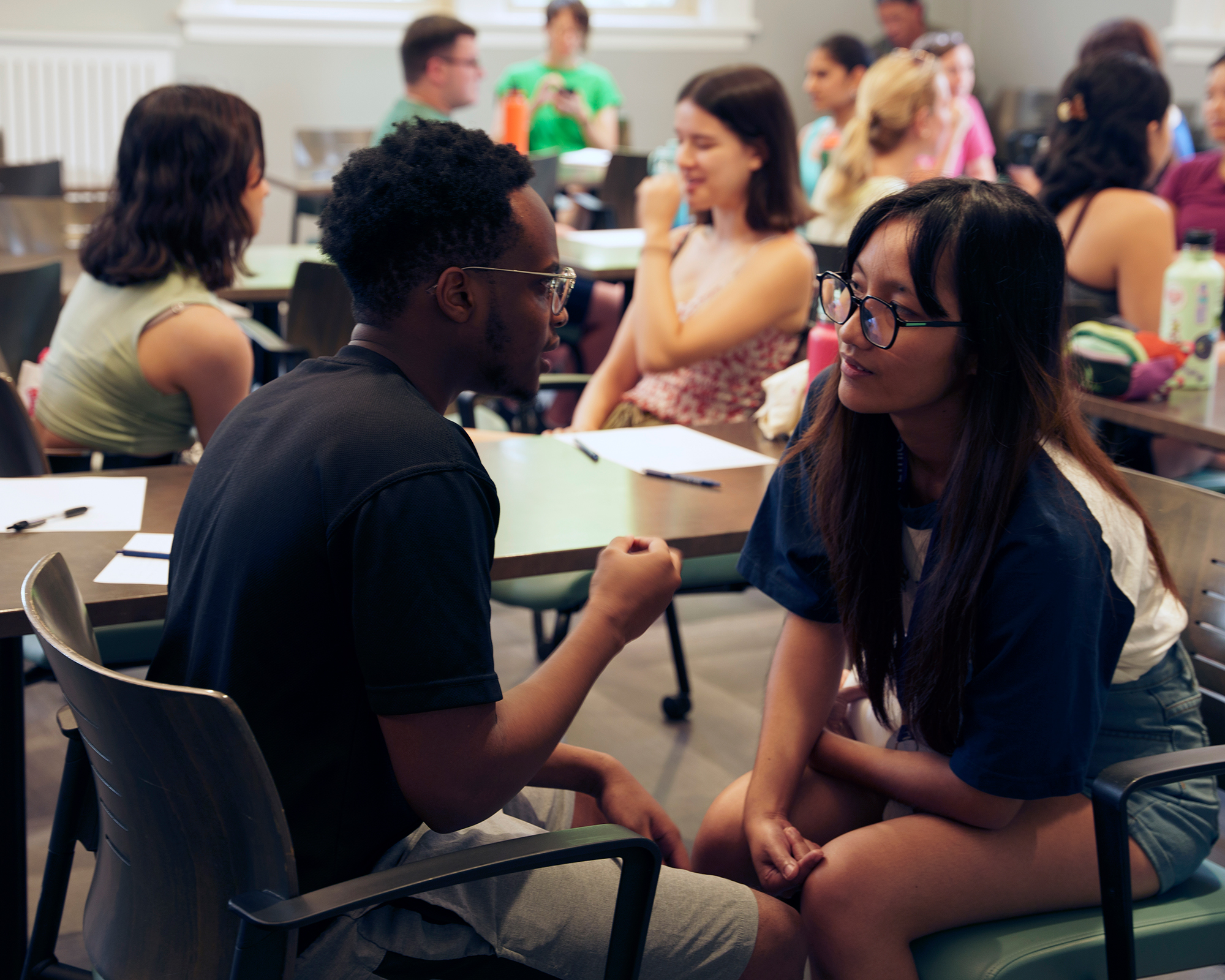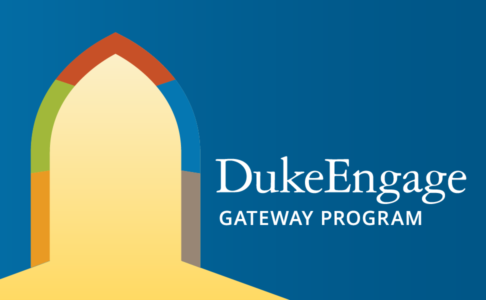This article by Thomasi McDonald was originally published on Duke Today as “William Barber on Maintaining a Moral Movement.”
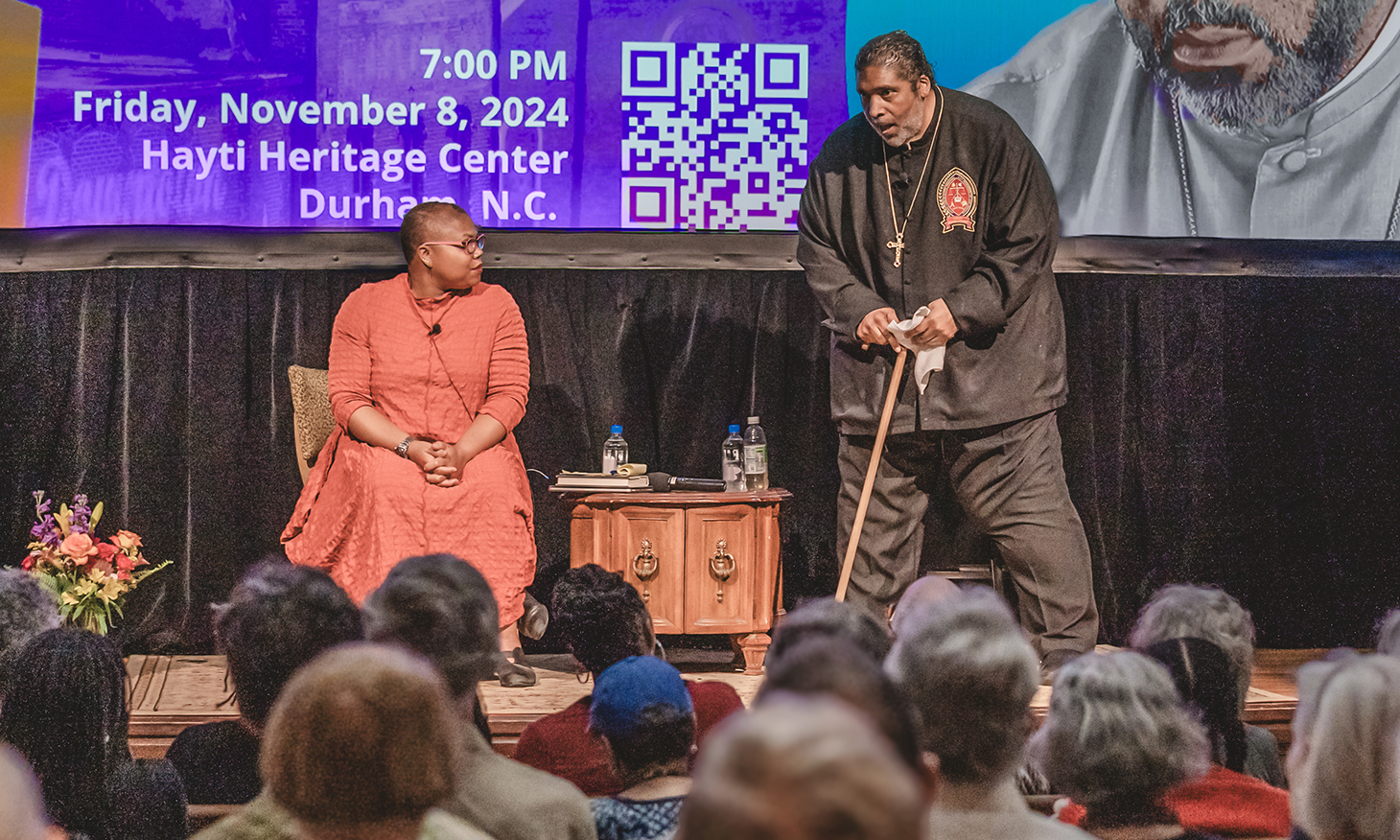
Three days after the national election, Duke historian Adriane D. Lentz-Smith stood in front of nearly 300 people at the Hayti Heritage Center. Like the audience, she was looking to Rev. William J. Barber II, the national civil rights leader and one of the country’s leading theologians, to help her process her complex feelings about the election’s outcome.
Weeks before the election, Lentz-Smith said she had attended a Stevie Wonder concert in Greensboro, where the legendary recording artist taught the audience that love is not about people deserving it.
“It’s about us doing it because it’s necessary,” she said.
But post-election, Lentz-Smith said she was having a hard time holding on to Stevie Wonder’s lesson because she was experiencing a “sort of emotion between contempt and fury, and I can’t imagine that I’m the only person, and I can’t imagine that this isn’t something you’ve encountered before. And I’m wondering what do you do with this?”
A Duke Divinity alumnus, Barber did not disappoint the audience that gathered in the former sanctuary of one of Durham’s oldest historically Black churches. The celebrated theologian and distinguished historian participated in a riveting 70-minute conversation as part of the Kenan Institute’s Ethics of Now series, which Lentz-Smith has hosted since 2018.
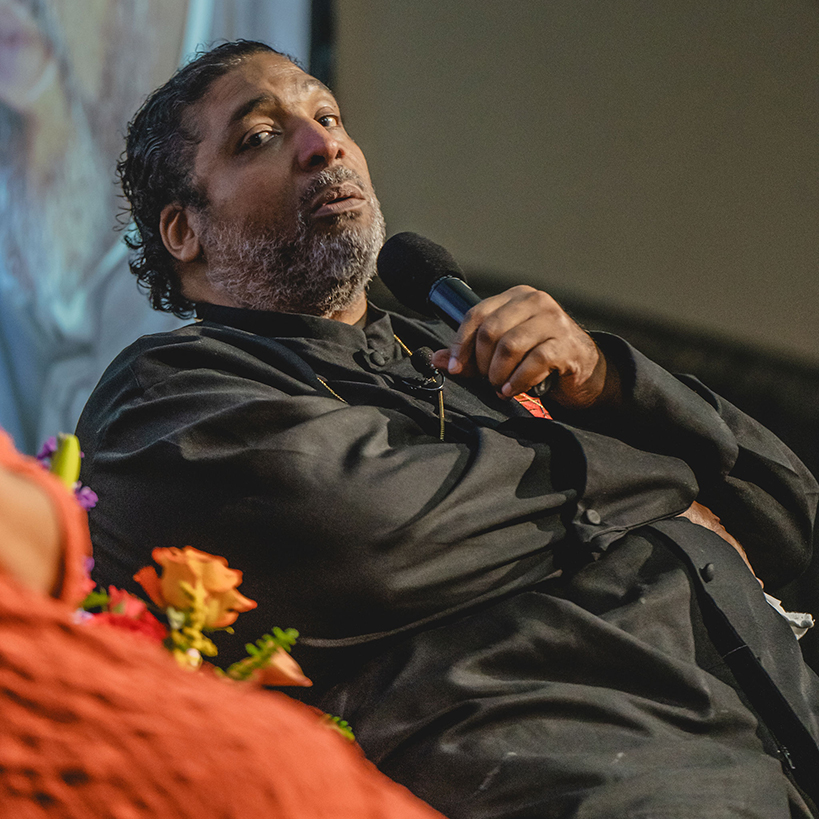
As much as any theologian of his generation, Barber can lay claim to the moral mantle of Dr. Martin Luther King Jr.’s social gospel movement. The Baptist preacher first came to the nation’s attention in 2013, when he organized the Forward Together Moral Movement in North Carolina, highlighted by what became known as the “Moral Monday” rallies at the state legislative complex in Raleigh, where nearly 1,000 people were arrested.
In 2015, he founded Repairers of the Breach to extend the Moral Monday movement as it grew nationally. In 2018, he helped to spearhead a revival of the 1968 Poor People’s Campaign that was originally led by Dr. King.
Barber said the Christian tradition includes the concept of agape love.
“You love people, things, persons, situations, communities, because they need something other than what they have. And they may not give the love back to you. But if you don’t give it to them, you become them,” he said.
Barber added that he refuses to allow any moment in this country, even when it is at its worst, to turn him into a lesser being.
“If I become that, then I can’t be an instrument of [transformation,]” he said. “We’re human. We should hold on to that fury. Faith doubts. Faith has to have doubt within to be authentic faith. Love sometimes struggles with hate. I would say if you just felt a need to grieve [on Election Day], you’re probably a little late.”
Barber said “we should have been angry long before now,” adding that what happened on Election Day was the fruition of the “Southern Strategy” deployed by the Republican Party starting in the mid-60s at the height of civil rights legislation.
The strategy, Barber said, created what GOP leaders described as “positive polarization” that would “pit people against each other that should be allies.”
The anti-poverty leader said it was “a planned reality.”
“Doctor King in 1965, said the greatest fear of the oligarchs in this country is for the masses of poor negroes and poor white people to get together and form a voting bloc that could fundamentally shift the economic architecture of the country.”
Barber co-authored a recently published book, “White Poverty: How Exposing Myths about Race and Class Can Reconstruct American Democracy,” which focuses on the power of this multiracial coalition.
“I believe we ought to take every piece of public policy and ask more questions. Does it establish justice? Does it provide for common defense? Does this policy promote the general welfare? But I also add this from a Christian religious perspective — is it rooted in truth? Is it rooted in justice? Is it rooted in love? Is it rooted in mercy?”
— Rev. Dr. William J. Barber II
Barber also offered pointed criticism of the Democratic Party campaign strategy that dismissed the economic hardships of the working-class poor, and years ago abandoned the South’s most impoverished citizens.
“The number one economic issue was a living wage everywhere,” Barber said. “Living wage was on the ballot. It won. Why wasn’t living wages a major campaign issue?”
He addressed the audience’s concerns about the election’s implications, including Lentz-Smith’s remark that “we are bearing witness to a period of intensifying nativism and rancid racism.”
“We are in a crisis of civilization,” Barber said. “We’ve got some serious questions to ask about this crisis of civilization.”
Barber took to task white evangelicals, whom he described as “opportunists who wrapped defense of segregation in the language of morality,” and “Christian nationalists [who] fail any kind of faith moral test.”
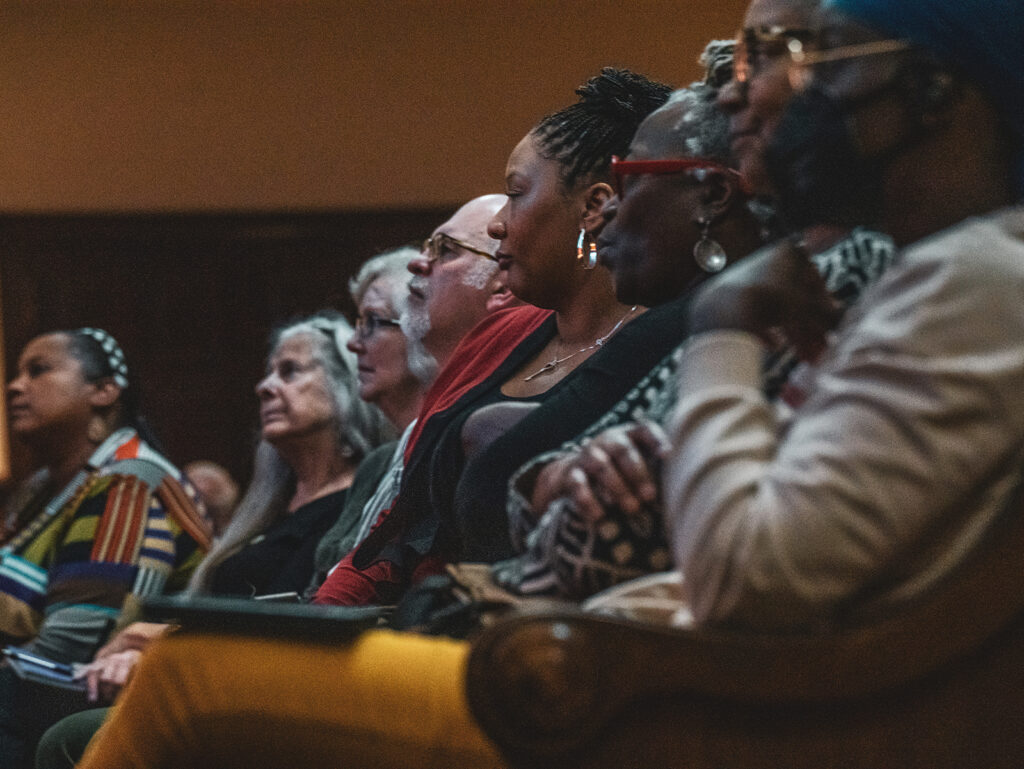
“I believe we ought to take every piece of public policy and ask more questions,” Barber said. “Does it establish justice? Does it provide for common defense? Does this policy promote the general welfare?
“But I also add this from a Christian religious perspective — is it rooted in truth? Is it rooted in justice? Is it rooted in love? Is it rooted in mercy?”
The civil rights leader said the nation should have grieved for the millions of people who died at the height of the covid epidemic.
“We lost 350,000 people, not from covid, but from the lack of health care,” he said. “And we entered covid [as] the only advanced country — so-called advanced country — that did not offer health care based on your humanity rather than your job.”
Barber also criticized corporate media titans who declined to endorse a presidential candidate.
“How can you not endorse when you have a candidate that everyday violates everything that the Lord hates?” he asked. “And I read in Proverbs 6 where it says the Lord hates proud eyes, a lying tongue, sowing division, hands that shed innocent blood. And then you look at everything Jesus said of a nation ought to be welcoming the immigrant, caring for the least of these.”
However, Barber said history shows that the politics of “arrogance, pride and injustice always goes too far and creates its own demise and creates the movement that takes it out,” and, he later added, “where the extremists go so far, they actually unite us.”
He encouraged the audience not to give in to despair.
“You’ve just been through an election,” Barber said. “You haven’t been through 250 years of slavery. You just went through an election, you haven’t been through 25 years of Jim Crow. So come on now. Let’s [not] glorify your pain too much.”
